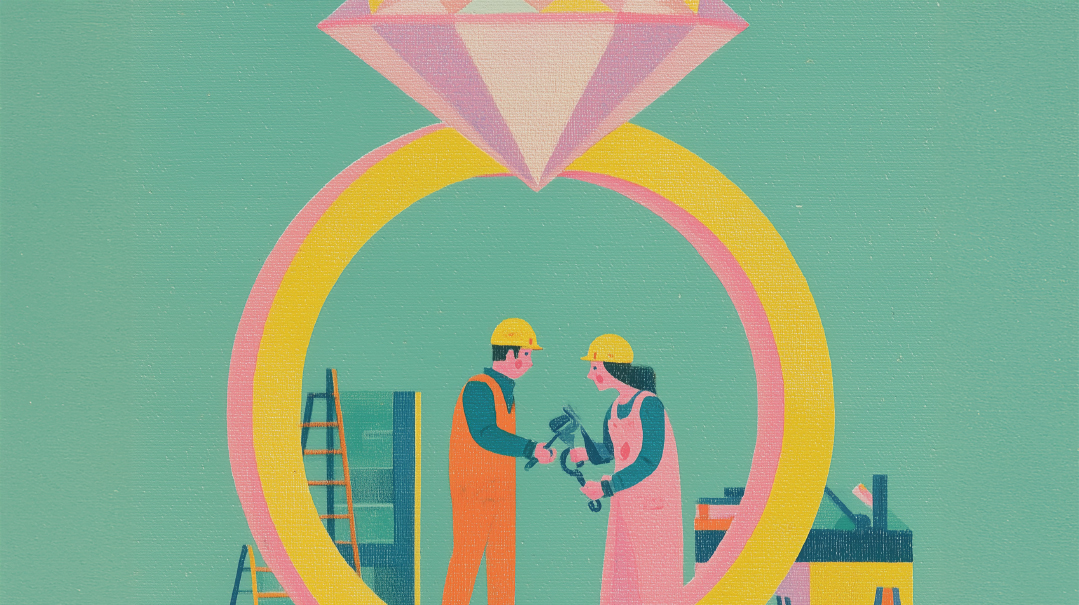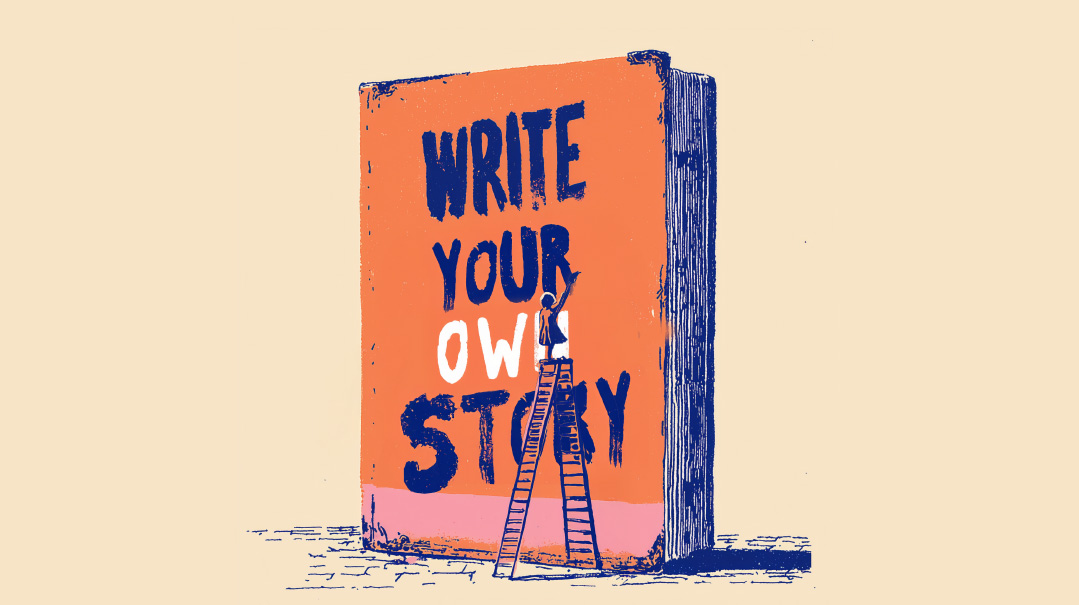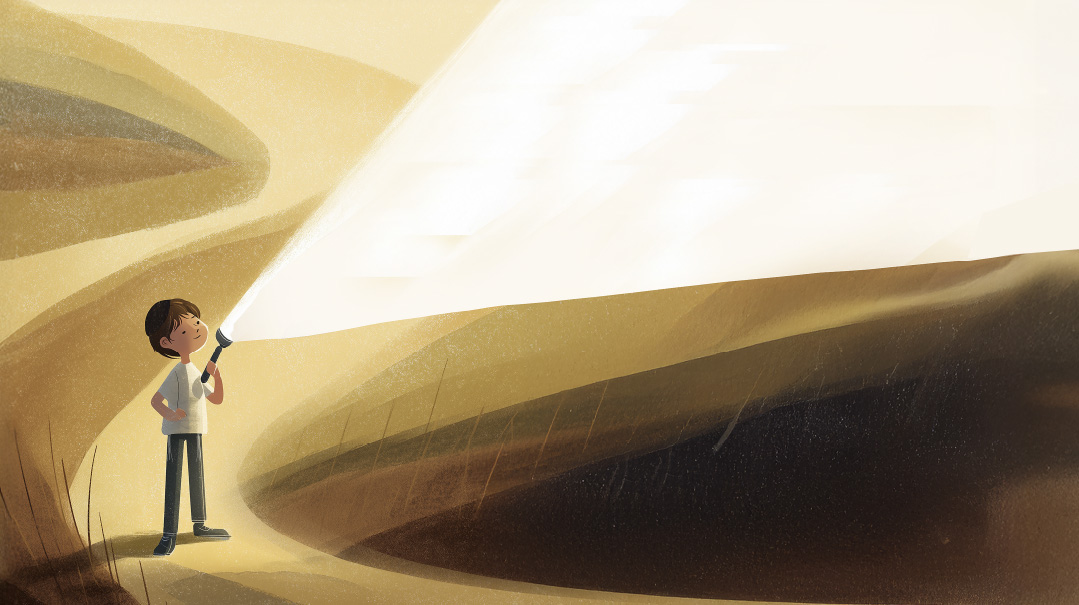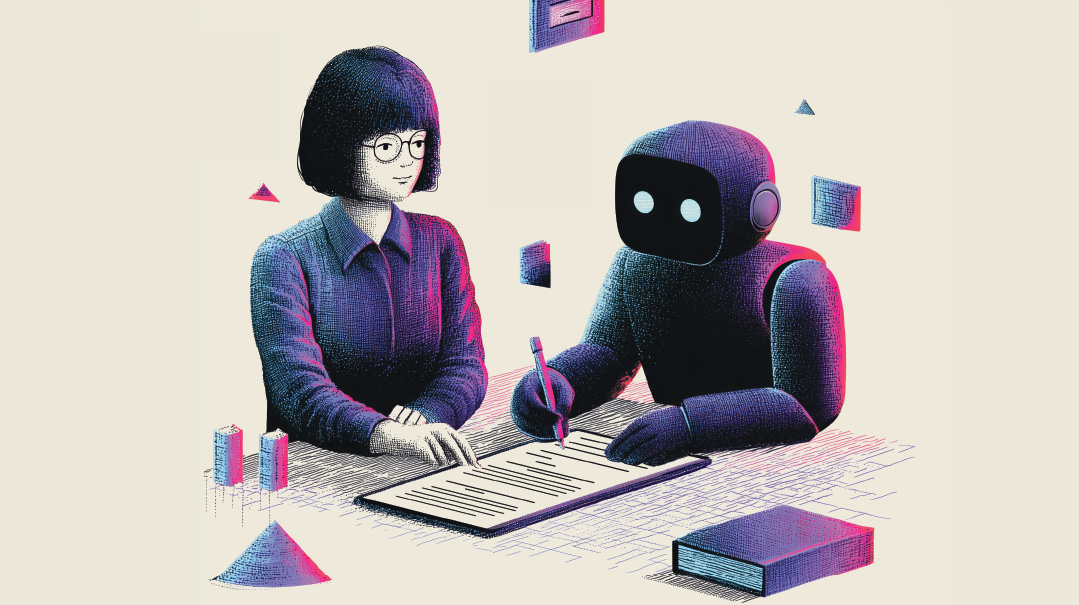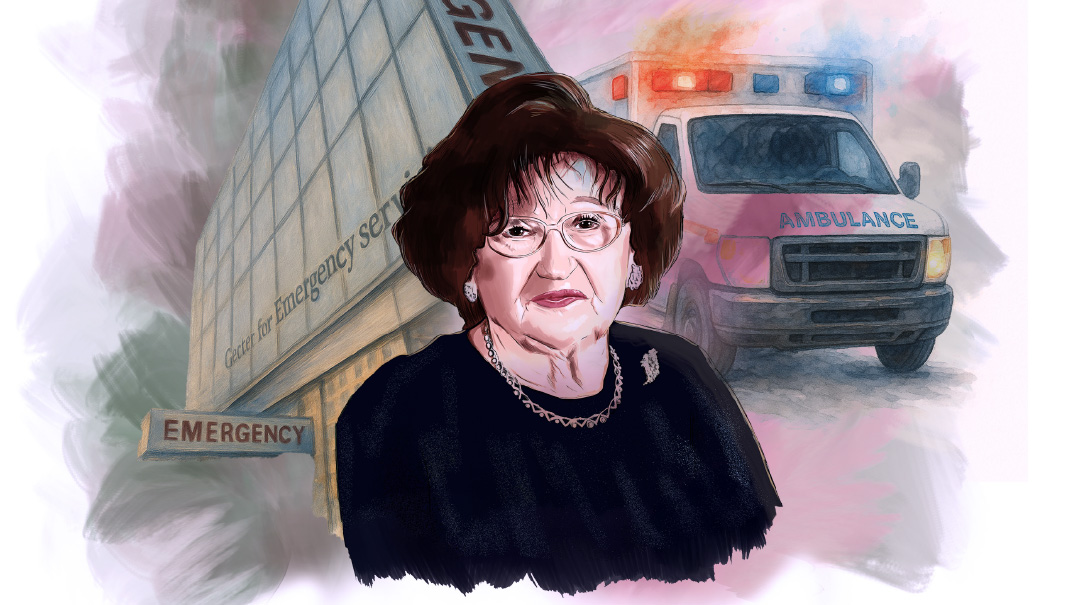My Mum Was a Work of (He)art
| September 29, 2021Mrs. Sandra Katz saw art, love, and faith everywhere. Rabbi Doniel Katz reflects on his mother’s unique gifts
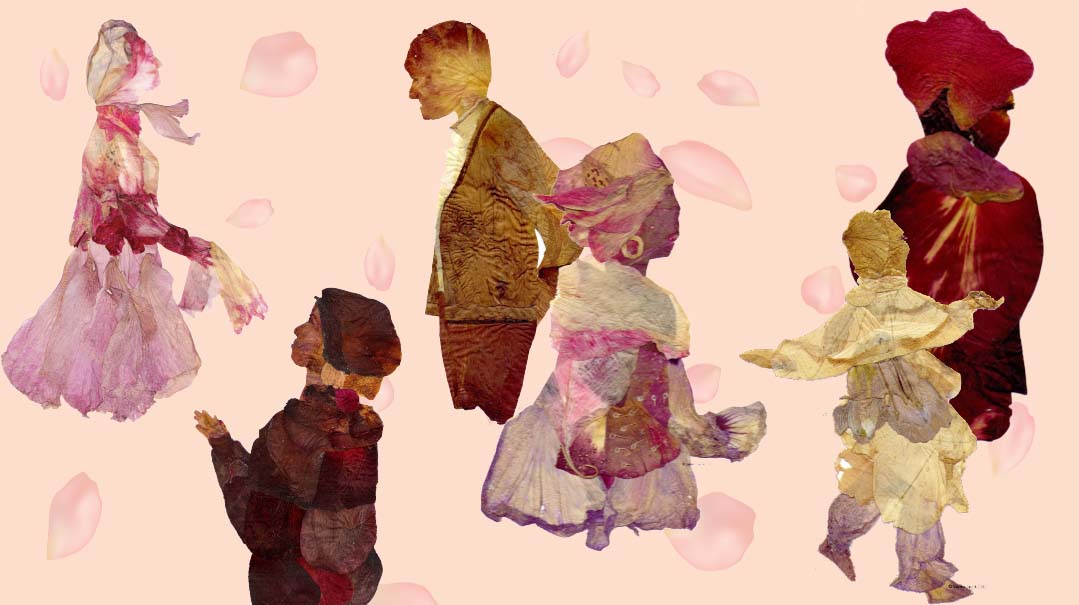
Does the “Elevation Project” ring a bell? For the last decade, Rabbi Doniel Katz’s visionary initiative — a blend of kabbalistic, chassidic, mussar, and Talmudic perspectives on the human psyche, tikkun hamiddos and dveikus — has uplifted international audiences from all walks of life.
Recently, his mother, Mrs. Sandra Katz a”h, the woman who first set him on his creative journey, passed away in Australia after a short illness. She was a woman of great depth and kindness, with an eye for the spiritual within the physical, for the wondrous within the mundane. It was this talent that inspired her unique and beautiful artwork: figures crafted exclusively from flower petals.
Touching the Next World
So much of the best of who I am is from her; my heart is her heart, my soul is her soul:
When my mum was first diagnosed with cancer, only seven weeks before her passing, she told me she was less afraid of cancer and death than of what the final stage of her life was likely to involve — being trapped in a hospital, enduring brutal medical treatments, and losing her autonomy.
While her true nature was one of remarkable calm and serenity, she rapidly descended into a state of panic, despite my doing all I could for her to the point of depletion. It broke my heart. (Due to the Covid restrictions affecting travel and entry to Australia, I was unable to be with her for her final weeks, but we were in frequent contact by phone and Zoom).
Then, suddenly, when it seemed things couldn’t get any darker, Mum’s consciousness suddenly settled, opened, and expanded, as if she was transitioning to a Divine awareness of the Next World while still embodied in this one. She kept telling me that nothing physical in This World mattered to her anymore.
During my final extended conversation with her, the day before she passed away, she reflected on her life with joy and bliss, seeing only the good in everything. She told me again and again, “Everything was only good and a blessing, even the hardest moments — everything was only Hashem.”
In that state, she was able to look into the hearts of the people who’d caused her the most pain and view them with nothing but love, understanding, and forgiveness. She didn’t need a thing; everything was light and good — even right there in the hospital, surrounded by the very same doctors and machines that had caused her panic attacks only days before.
I quoted her some teachings from the Zohar and Chazal, explaining to her what she could expect to happen once her soul transitioned to the Next World. She responded with a joyful heart and deep resonance, “I know, I know, yes, yes, how wonderful. I see it and feel it already. I know.”
I believe my mother merited this because seeing the good and Divine in all things was something she worked on all her life. She went through some very challenging times. But she always, always wanted to see the good, and find the good, in people, things, and situations. The more she became religious in the last 20 years of her life, the more she would declare it all to be Hashem — until, in the last days of her life, He opened her eyes, and that’s actually all she saw.
A Childhood Vision
Twenty years ago, at the beginning of my teshuvah journey, I came to Jerusalem to learn in yeshivah. After two and a half years of learning here without seeing my mother, we arranged a visit for bein hazmanim. Since Mum was originally from England, we decided to meet in London and travel to Manchester, where she’d grown up.
For years, she’d dreamed of what a magical moment it would be to take me to her childhood home. In her memory, her home was on an idyllic street, full of energy and joy, with children playing and neighbors chatting. But after so many years, the reality couldn’t have been more different.
The whole area we walked through was drab and run-down. The streets were empty. No one mingled with their neighbors. My mother was devastated. For days afterward, she spoke constantly about how the world of her childhood didn’t exist anymore.
We left England in a subdued mood and flew to Israel — her first trip there in decades. We’d planned to spend Shabbos in the Mattersdorf neighborhood, and when we arrived on Friday afternoon, the roads were already blocked off. Children flooded into the streets with their jump ropes and balls. Families greeted each other warmly from the open doorways of their homes.
My mother stood there dumbstruck, tears in her eyes. This was the vision of her childhood — what she’d just mourned as being lost forever — suddenly alive and present in the modern world. I remember my mother turning to me with a look that said for the first time, she understood the power and beauty of Torah and why I’d decided to become frum.
X-ray Perspective
Mum was an unassuming, introverted, gentle soul. People who knew her superficially may have thought she wasn’t particularly intelligent or in tune with things. But she had a profound, intuitive sense of what was really going on around her — a kind of X-ray vision into the depth of people’s hearts.
My wife and I used to play a brachos game at our Shabbos seudos, where each guest (generally yeshivah bochurim or seminary girls) would give a brachah to another person at the table.
When Mum visited us, she was always the star of the game. Raising her glass, she’d give a brachah to a guest she’d only just met — and in a few simple sentences, she’d see the truth of who they were and pierce right to the core of their struggles and dreams.
In one of my first yeshivahs, I was very unhappy and found it difficult to connect to one of the main rabbis in charge, but I couldn’t pinpoint why.
When Mum came to Israel for a visit, this rabbi invited us for a Shabbos meal. He was a talmid chacham with a very strong, authoritative presence. Mum gamely sat down at the table with the rabbi’s large family, and kept a warm smile on her face as she absorbed all the details of this new environment.
Even though the rabbi had encouraged me to bring her to the meal, he didn’t address her very much. Suddenly, halfway through the meal, he turned to her and asked, in a booming voice, “Do you know what the greatest challenges have been to the modern yeshivah system?”
Mum — despite not knowing, caring, or having ever thought about the modern yeshivah system — turned to him with a smile and replied, “No, I don’t. Please tell me more.” He then launched into a complex 15-minute thesis about history and politics as my mother ate her soup and listened, nodding.
As we walked out onto the street after the meal, I was waiting to ask my mother how her first experience at a frum Shabbos table had been. Mum spoke in her usual gentle way about the lovely atmosphere, the beautiful family, and the delicious food. Then, without a shred of negativity or judgment, she remarked matter-of-factly, “He seems to be a very learned man, but he’s not very comfortable with people, is he?”
The second she said it, my own struggles clicked into place. I’d been so caught up in the awe of talmidei chachamim and my difficulties connecting to them that I was blind to what was making me so uncomfortable: the challenges that the rabbi was personally struggling with.
My mother’s insight eventually helped strengthen my relationship with him, as it allowed me to meet him where he was rather than needing him to be someone he wasn’t. Everyone who met him saw his incredible brilliance — but this was one of those moments I was reminded that there are many different kinds of genius, and my mother, in her own way, was brilliant, too.
Seeing the Divine in All Things
I think my mother’s greatest gift was emunah. Emunah doesn’t just mean that you believe in Hashem — that He exists somewhere out there — but that you see and experience Him everywhere, all the time. You know how to find the Divine in any person or challenge, and draw it out not just for you, but for everyone to see.
My mother lived in Melbourne and we were in Jerusalem, and flying was a difficult ordeal for her. But when the older kids were small, she would come once a year and stay with us for two and a half months. She loved Jerusalem, and would sometimes spend half the day riding buses to the end of their routes just to see the city and experience life in Israel.
She adored the kids, and would spend hours with them joyfully drawing and painting. She used art to help them develop their own creativity and sense of self, giving each child specific compliments about their particular skills and capabilities. She shepped nachas to an unbelievable degree and smothered the family with unconditional love.
Before I became frum, I was a young up-and-coming film and theater director, winning awards and hoping to change the world with my visions and stories. When I was ten years old, I was already writing and directing plays at the local Reform synagogue. My mother would sit with me at the kitchen table with a paper and pen and ask me, “What happens next in the story?” She’d laugh out loud if I came up with a good joke, and would exclaim, “That’s wonderful!” when I had an interesting idea for a scene.
She helped me structure my visions by writing down everything I said, patiently prodding me for the details of the story, and an hour later I would have a whole play in hand. She’d present it to me and say, “Now go direct this, and I’m inviting all my friends to come.”
So much of what I’m able to do today was gifted to me from her, in a thousand moments like that. I’ve always had a deep self-confidence — and that’s all because Mum believed in me so much.
My wife, Miriam, says Mum was the most accepting person she ever met. There’s something my wife said during the shivah that really touched me: “I would have understood if your mum had had mixed feelings toward me at the start, since you were her only child and had such a close relationship with her. But right when we got engaged, I remember her gushing, ‘I always wanted a daughter!’
“And that’s how she treated me, with the utmost warmth and admiration from the first moment we met. It was only when I started hearing some of my friends’ struggles with their in-laws that I realized how special and unusual that relationship was.”
My wife has stated many times that my mum’s wholehearted acceptance of her and the pure nachas she got from our family was personally transformative for her. “It drew out the best in me.”
Art and love and emunah were the very essence of how my mother experienced life. Everywhere she walked, she would bend down and pick up the little petals she saw on the ground, with a smile and a glint in her eye. “What a beautiful face she has!” she would say, staring down at a crumpled petal that anyone else would have trampled on.
It was only months later, when she assembled the petals together, that suddenly the picture would jump out: “Wow, look at that woman with the 18th-century dress! Look at that man with the old smoker’s coat!” My mother was able to find the Divine in the smallest of things and bring those sparks together so everyone else could see them, too.
Her Own Bridge
The day I left for yeshivah in Israel, my mother handed me an envelope and told me to read the letter inside it on the plane. After getting comfortable in my seat, I ripped open the envelope. It was a long, beautiful letter about how much she trusted and believed in me. She said even though she didn’t yet understand my path to become religious, she knew that, if I was so sure about it, it was the right decision and was bound to end well.
Then came a paragraph that infuriated me. Mum wrote that she’d always felt she had great depth, talents, and gifts, but that she’d never known how to express them. She always felt a little lost and alone in the world and was never able to find the confidence to bring out her own potential. With a kind of despair, she wrote, “While I was never able to express myself, you, my son, will be my bridge to the world.”
I was furious when I read that. A long-repressed anger exploded within me: “I don’t want to be your bridge! I don’t want the burden or the responsibility of having to carry your pain and failure! I’m me and you’re you. Be your own bridge! Be your own bridge!”
All that seems like a million years ago. In between, I gave up my film career, flew halfway around the world, learned in Jerusalem for many years, married a wonderful woman, had seven beautiful, holy kinderlach, and today lecture around the world teaching Torah to thousands. And now, having just lost my beloved mother and best friend since birth, I look back on that letter with new eyes.
If I was given five more minutes with my mother, I’d want to put my hand on her heart and tell her, “Mum, you never needed me as your bridge, because you were your own bridge. We saw your light, your gifts, your love. We were blessed and elevated by your joy and emunah and creativity. We were nurtured through your profound compassion for people and your ability to find the nekudah tovah in everything and everyone.
“Oh, Mum, you weren’t hidden. You weren’t unseen. We saw you. You revealed you. You never needed me to do that for you, because without a shadow of a doubt, in your own quiet, humble way, you built your own bridge.”
I think back to the last 48 hours before my mother passed away, and the incredible illumination and clarity that came over her that could only be described as a kind of spiritual awakening.
Rav Eliyahu Dessler ztz”l teaches that what happens to the soul after we pass on is just an extension of the way we lived in This World. When you commit to seeing the good in G-d, even in the tiniest details, even in the greatest darkness, no doubt the day will come when Hashem will open your eyes and heart so that good is all you see — and you’ll realize, in the deepest sense, that’s all there ever was.
And if that’s not the definition of Heaven, I don’t know what is…
(Originally featured in Family First, Issue 761)
Oops! We could not locate your form.


